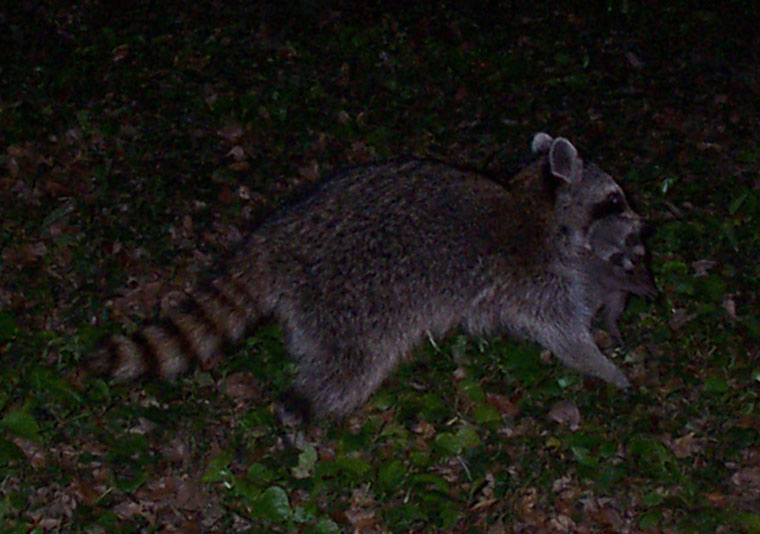- info@wildlife-removal.com
Call us for help in your town
Wildlife Removal Education
Where To Release a Raccoon
Need raccoon removal in your hometown? We service over 500 USA locations! Click here to hire us in your town and check prices - updated for year 2020.
If you have a raccoon in a trap, congratulations! You should actually be rather proud of yourself, because some people don't even make it quite that far!

Before you look into the perfect area to release a wild raccoon that you have trapped on your land, you should first look into the legalities. In rabies-threat areas, you probably won't be allowed to release that raccoon back into the wild at all, meaning that you will need to find a better approach to ‘dispose' of the pest.
If you are going to release a raccoon back into the wild, it is best to do it as soon as possible. Raccoons are nocturnal animals so, during the day, they will need to find somewhere to curl up and fall asleep. They eat, hunt, mate, etc., during the night. That's when they are most active. If you release an animal first thing in the morning, the raccoon might not have the chance to find a hiding spot in time for other, bigger predators to come out and play. This puts the animal in danger. Early evening is a great time for release, but we do still recommend as soon as possible after you have captured the animal. All the time it is sitting in a cage, unaware of what is going on around it, the animal's stress levels will just continue to go up and up and when an animal is stressed, it doesn't tend to do very well in the wild, particularly without peers or family.
Raccoons should be released at least ten to fifteen miles from the place they were trapped, otherwise, they will just come right back.
Raccoons should also be released in areas that have a lot of trees, and preferably close to a river, lake, stream, or pond. The trees offer the animal both protection and a place to sleep, in the form of tree hollows, and the raccoons spend a lot of their time close to water. They will even fish for crabs, newts, fish, and other marine life too.
If you have a family of raccoons - a mother and her young - it is recommended that you release them all at the same time, and also in the same place. If you release youngsters back into the wild without their mother, they will die in a matter of hours, either from starvation, exposure to the elements, or from a predatory attack.
In reality, when you release raccoons back out into the wild, you aren't giving the best possible chance of survival. Raccoons are well-known to travel, yes, but no wild animal copes well when it has been ripped from its home and dumped somewhere else. If you have caught a raccoon that has never spent a day of its life in rural spots, living in urban habitats alongside humans, dumping it back out in rural spots will almost certainly kill it. Some of the animal's basic instincts will kick in, of course, but the animal will have become somewhat complacent and lazy. Human habitats are a much better source of food, in most cases, than rural, traditional territories are.
Go back to the Raccoon Removal page, or learn tips to do it yourself with my How to Get Rid of Raccoons guide.


















